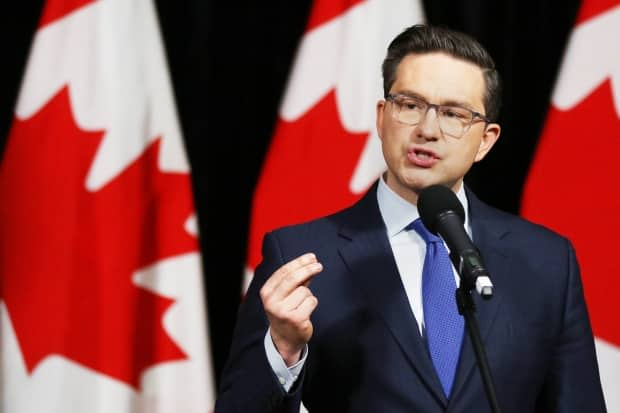Leaks alleging China interfered in 2021 election have 'inaccuracies,' Trudeau says

Prime Minister Justin Trudeau is questioning the accuracy of recent top-secret leaks to the media that allege China interfered in the 2021 election.
The Globe and Mail reported last week that secret and top-secret documents from the Canadian Security Intelligence Service (CSIS) said Beijing sought to ensure a Liberal minority government and the defeat of several Conservative candidates in 2021. A former Chinese consul-general in Vancouver bragged about her efforts to defeat two Conservative MPs, according to the documents detailed in the Globe story.
"We are very concerned with the leaks, particularly because there are so many inaccuracies in those leaks," Trudeau told a news conference on Thursday
WATCH | Trudeau claims leaks about election interference contain 'many inaccuracies'
Since the Globe report emerged, Trudeau has maintained that Canadian voters alone decided the outcome of the last federal election — an assertion he repeated on Thursday.
"The election integrity held," he said. "That does not mean, nor have we ever contended, that there isn't ongoing efforts by countries like China to interfere in our democracies."
The prime minister didn't specify which parts of the leaks are inaccurate.
Conservative Leader Pierre Poilievre has accused Justin Trudeau of ignoring Chinese interference.
"Justin Trudeau knew about this interference, and he covered it up because he benefited from it," Poilievre said last week. He did not cite evidence beyond the Globe story.

Critics of the government have pressed it to come up with a more aggressive strategy on foreign interference since a Global News story last year said CSIS briefed the prime minister on Chinese plans to interfere in the 2019 election. Sources cited in the story said China's government covertly funded candidates in the campaign.
The government has been pressed to establish a foreign agents' registry, like those in the United States and Australia.
The House of Commons procedure and House affairs committee unanimously agreed Tuesday to invite Foreign Affairs Minister Mélanie Joly and Intergovernmental Affairs Minister Dominic LeBlanc for another round of questioning.
WATCH | At Issue panel discusses foreign interference
The committee is also summoning Public Safety Minister Marco Mendicino, along with representatives from Elections Canada and the national security agencies, including the RCMP and the Canadian Security Intelligence Service.
Michael Pal, an associate law professor at the University of Ottawa, told the Canadian Press that academic sources, journalists and Canada's national security agencies have suggested "foreign interference happens in every federal election in Canada now," although its effects remain unclear.
"It's just very hard to measure how people would have otherwise acted absent the foreign interference. Would they have voted differently? Would they not have voted?" Pal said.
Under federal protocol, there would be a public announcement if a panel of senior bureaucrats determined that an incident — or an accumulation of incidents — threatened Canada's ability to have a free and fair election.
There was no such announcement concerning the 2021 or 2019 elections. Both times, the Liberals remained in government with minority mandates, while the Conservatives formed the Official Opposition.
"Presumably they either didn't have the intelligence at the time, or they had it and it just did not, in their estimation, rise to the level necessary to make such an announcement to the public," Pal said.
Several issues have contributed to the current tense relationship between Canada and China, among them China's detention of two Canadians and Canada's move to ban the Chinese telecommunications giant Huawei from the Canadian 5G network.


